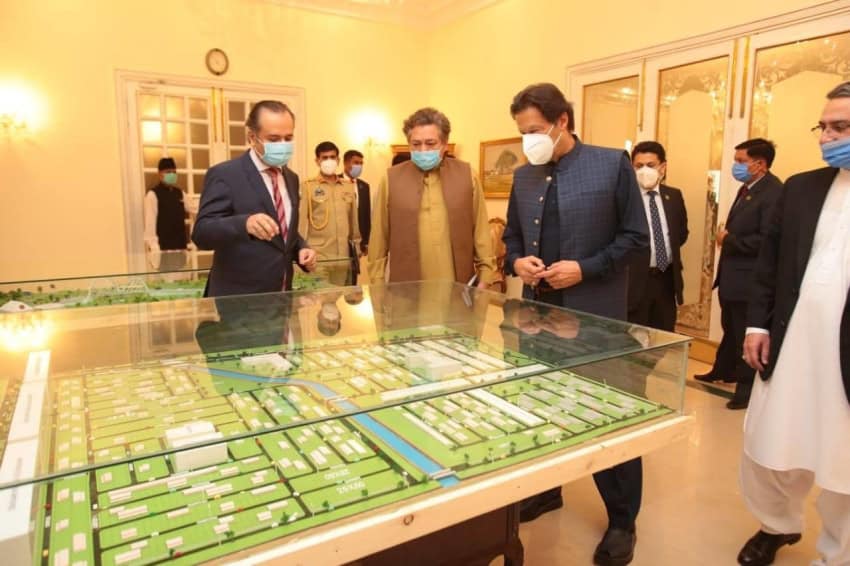ISLAMABAD – Prime Minister Imran Khan performed the ground-breaking of Korang bridge-PWD Interchange at Islamabad’ Expressway and Rawal Dam Chowk Interchange on Thursday.
Chairing a meeting on the development projects of Islamabad, the prime minister launched the projects through video-link.
The interchanges will be constructed at Rawal Dam Chowk and the Korang Bridge along with PWD (Pakistan Works Department), the busiest roads of the capital that routinely see traffic melee at peak hours.
PM @ImranKhanPTI today performed groundbreaking of four development projects for Islamabad.
The projects include Rawal Dam Chowk Interchange,Construction of PWD underpass & Korang Bridge at Islamabad Expressway and Phase One of development works at I-15 Residential Project. pic.twitter.com/in1SD3oeJR— PTI (@PTIofficial) July 2, 2020
The prime minister also performed ground-breaking of the Phase-One of Development Works at I-15 project.
PM Imran, on the occasion, was briefed on the development works and their significance for the residents of the federal capital.
The groundbreaking ceremony was also attended by the federal cabinet members, Chairman Capital Development Authority and senor officers.
The contract for the three road projects has been won by a joint venture of Maqbool Associates and Calsons.
The construction of Rawal Dam Interchange is crucial in wake of the growing traffic load at Park Road and Murree Road owing to increased population in the adjoining areas.
The PWD and Korang Bridge are the two bottlenecks at the Islamabad Expressway which catered to both local and heavy traffic between Islamabad, Lahore and Azad Kashmir.
The road had already been made signal free from Faisal Mosque till Koral Chowk, the portion between Koral and Rawat is yet to be widened and made signal free. However, after construction of both the PWD Interchange and Korang Underpass would resolve the issue of traffic congestion at the Expressway to a great extent.
The launch of the development work in sector I-15 would help address the agony of those who had been allotted plots in the residential sector launched some two decades ago mainly meant to accommodate the low-income group.














